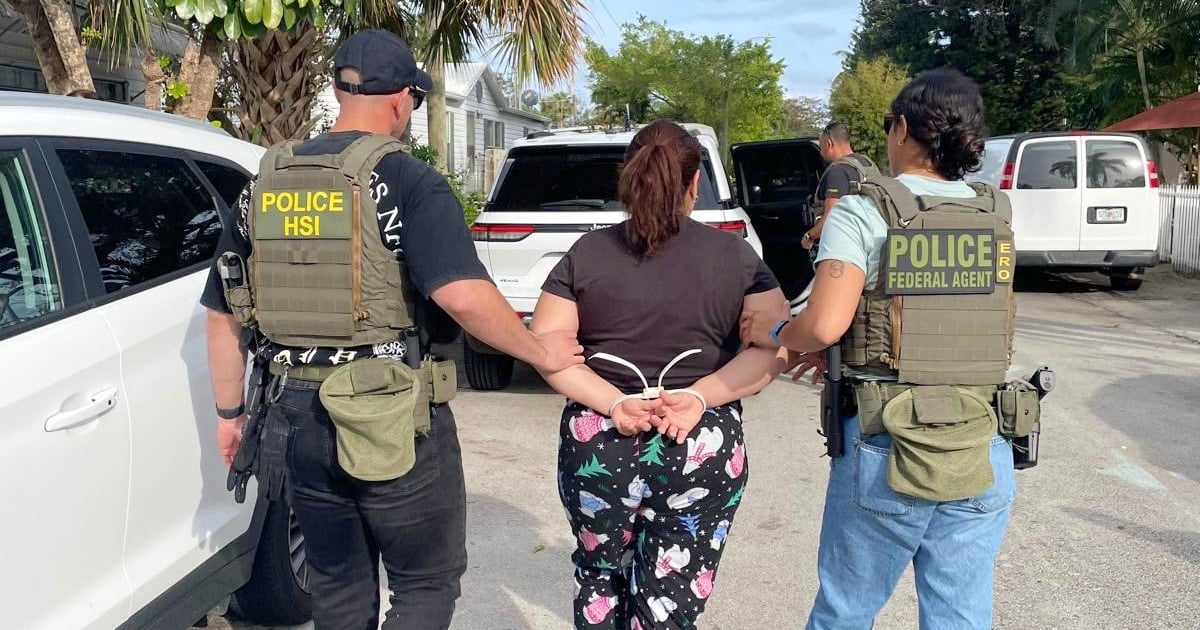Amidst a tense and controversial legislative session, both the Senate and House of Representatives in Florida passed the "Trump Act" on Tuesday. This legislation aims to tighten state policies against illegal immigration. Spearheaded by Republican leaders, the law seeks to bolster cooperation between local law enforcement and federal immigration agencies, increase penalties for undocumented immigrants committing crimes, and remove access to state tuition discounts for undocumented students who attended high school in Florida.
Republican leaders have portrayed the "Trump Act" as an endorsement of former President Donald Trump's immigration agenda. However, Florida Governor Ron DeSantis, who once aspired to the Republican presidential nomination, has voiced his opposition, labeling the measure as "weak and watered down." "We must have the strongest law in the nation for immigration enforcement. We cannot be weak," DeSantis declared on social media platform X (formerly Twitter), vowing to veto the bill.
Power Struggle within the Republican Party
The tension between the legislature and the governor has sparked an unusual power struggle within the state's Republican Party. The bill, sponsored by House Speaker Daniel Pérez and Senate President Ben Albritton, allocates $500 million to enhance coordination between state and local authorities with federal immigration agencies. It also intensifies criminal penalties for undocumented immigrants who commit crimes in the United States.
Impact on Undocumented Students
One of the most contentious aspects of the "Trump Act" is the removal of access to discounted state tuition for undocumented students who attended high school in Florida. This policy, in place since 2014 under then-Governor Rick Scott, has allowed over 6,500 undocumented students to pursue higher education in the state.
State Senator Carlos Guillermo Smith, a Democrat from Orlando, harshly criticized the measure, questioning how repealing state tuition law aids in fighting violent criminals who pose a threat to public safety. "It doesn't. It feels petty. It feels wrong," he stated. Meanwhile, Republican Representative Juan Porras defended the measure, arguing that protecting state resources is necessary. "We have a duty as a legislature to protect the funds of taxpayers in this country. We have many 'dreamers,' but we also have many citizen students trying to pay for their studies," he asserted.
Harsher Penalties for Undocumented Immigrants
The "Trump Act" also includes stricter measures against undocumented immigrants who commit crimes in Florida. Those found guilty of a capital offense, such as murder or child rape, will face mandatory death penalties. Furthermore, undocumented immigrants involved in gang activities will receive the maximum penalties allowed by law.
Democrats have criticized the swift approval process of the bill, arguing that some provisions are "cruel." They have emphasized the need to protect schools and places of worship from potential raids, as the bill mandates government employees to cooperate with federal immigration enforcement.
The Bill's Future
Despite Governor DeSantis's announced veto, the state legislature could override it if they garner enough support. The measure passed both chambers with a significant majority, though there were some dissenters within the Republican Party. Republican Representative Mike Caruso, whose district includes former President Trump's Mar-a-Lago estate, voted against the measure, deeming it insufficient. "This bill is weak. It won't stop illegal immigration," he stated.
Meanwhile, the Trump administration has backed the bill, urging state lawmakers to focus on strengthening immigration law enforcement without yielding to external pressures. Republicans in the legislature have attempted to balance implementing stricter immigration measures with maintaining the support of Latino voters in Florida, a crucial demographic in state and national elections.
With DeSantis poised to wield his veto pen, the critical question remains whether Republican lawmakers will have the resolve and votes needed to override his decision and enact the "Trump Act" into law.
Key Questions About the Florida "Trump Act"
What is the "Trump Act" in Florida?
The "Trump Act" is a piece of legislation passed by Florida's Senate and House of Representatives aiming to tighten state policies against illegal immigration. It focuses on increasing cooperation between local law enforcement and federal immigration agencies, enhancing penalties for undocumented immigrants who commit crimes, and removing tuition discounts for certain undocumented students.
What impact does the "Trump Act" have on undocumented students in Florida?
The "Trump Act" eliminates access to state tuition discounts for undocumented students who attended high school in Florida. This change affects over 6,500 students who previously benefited from this policy to pursue higher education.
How has Governor Ron DeSantis responded to the "Trump Act"?
Governor Ron DeSantis has expressed his opposition to the "Trump Act," calling it "weak and watered down." He has vowed to veto the bill, advocating for stronger immigration enforcement laws.
